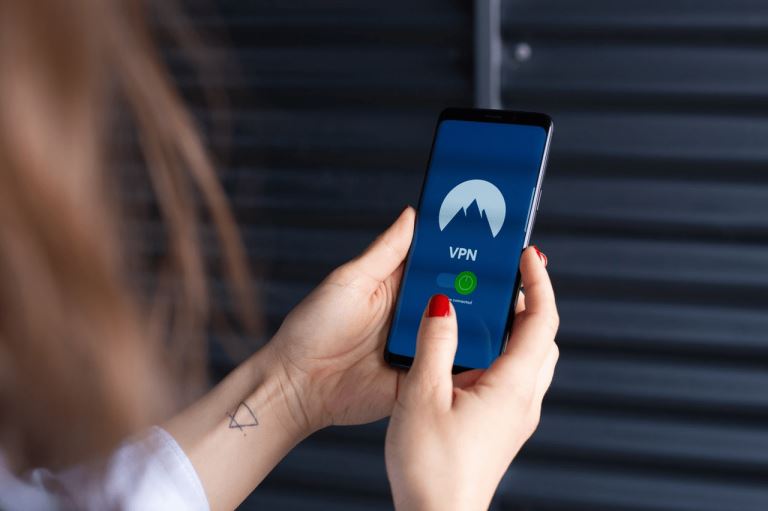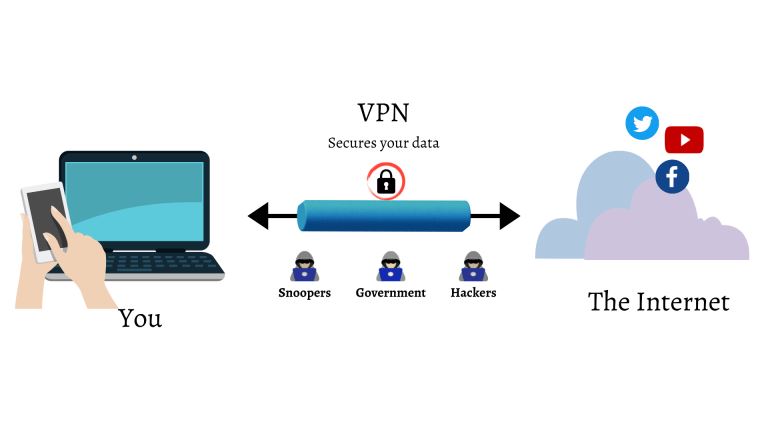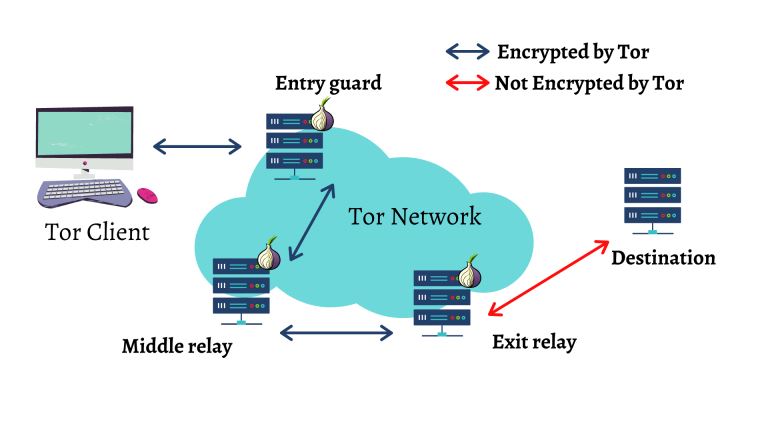What Does a VPN Hide?
The more we use the internet, the more susceptible we become to cyber attacks. This makes a virtual private network (VPN) an essential tool to access the freedom of privacy when visiting streaming services, websites, and other places of interest on the internet. Sadly, many people are not aware of VPNs and the benefits they have to offer. This is, however, a trend that is slowly changing as the internet grows in popularity.
A VPN creates a private network from a public connection that helps users hide their browsing history, streaming location, IP address, web activity, and devices from their internet service provider (ISP). Any data that passes through a VPN is filtered out and turned into an unreadable format through encryption. That means that if someone gets their hands on your data, they will have difficulty decoding it.
What is a VPN?
A VPN stands for “virtual private network.” It provides anonymity and online privacy when using a public internet connection by creating a private network. Originally, VPNs were created to secure connections to business networks over the internet and allow employees to access them from home. Their popularity has shot up in recent years but for reasons that were not initially intended for them.
How Does a VPN Work?
When you activate a VPN while browsing, it creates an encrypted data tunnel between your device and a VPN-operated remote server. This server could be located very far from you, making it look like you're in a different place. All the data transferred from your device is routed through this tunnel; this keeps your internet traffic secure from prying eyes. Moreover, your location and identity are masked because your real IP address is encrypted.
This is the privacy that most people seek. When using a VPN, it will associate all your internet habits with the IP address of the VPN server. So nobody will know it’s you. Your ISP has the luxury of accessing your entire browsing history if you do not use a VPN. Some VPN services have access to servers worldwide, making it seem like you originate from anywhere you wish.
What Does a VPN hide?
A VPN comes with the benefit of hiding information that can endanger your privacy. They are:
1. Your devices
When trying to hide your smartphone, desktop computer, tablet, or laptop from prying eyes, a VPN can be of great use. Cybercriminals could be monitoring your devices as prime targets when using the internet, especially public Wi-Fi. By using a VPN, the data received and sent from your device is protected, and hackers will not be able to monitor your activities.
2. Browsing History
Beware of private browsers; some are not what they say. Your visits to the internet are not a secret. Your web browser and your internet service provider can track a good number of your internet activities. Nowadays, a lot of websites also keep a history. Web browsers can be used as a tool to track your search history and tie it to your internet address. For clarity, I will provide two case scenarios:
- Scenario 1: Imagine being diagnosed with a condition you do not want to make public for whatever reason. By searching the internet for treatment options without using a VPN, you may start receiving ads about your condition that may create unnecessary attention.
- Scenario 2: You may be planning on doing your monthly online shopping from your favorite store. The store websites know you are looking for some good offers, but they might display prices that are not the cheapest.
3. Location and IP Address
Anyone who can access your IP address has the power to access your previous internet searches and your location when you did the searches. An IP address can be compared to a return address on a postal letter. It comes back to you.
A VPN creates an IP address for you, allowing you to search the web anonymously and maintain online privacy. A VPN also protects you from getting your search viewed, gathered, or sold. Remember, if you are using a work computer, a public computer, a school computer, or one from other organizations, your search history is still at risk of being viewed.
4. Streaming Location
For people who subscribe to streaming services, a VPN can be convenient. When you travel to other countries, your streaming service may not be available due to regulations or contractual reasons. Having a VPN gives you the option of selecting an IP address from your own country. This gives you the luxury of accessing the programs of your streaming service. Moreover, you get to avoid speed or data throttling.
5. Web Activity
For dark web enthusiasts and people who want to avoid any surveillance, your web activity is hidden when using a VPN. As mentioned before, A VPN will protect your browsing history from your internet service provider. Therefore, if any agency requests records of your internet activity from your ISP, your internet freedom will be protected.
What Won’t a VPN Do?
This powerful and simple privacy protection tool is convenient, but if someone specifically targets you and puts in a lot of effort, they might get what they are looking for. For example, some cybercriminals can use malware to defeat the VPN on your device. Others are skilled enough to analyze traffic patterns on your VPN server and correlate them to your computer activity.
Using a VPN doesn’t prevent company websites from using things like cookies to analyze your internet usage. This can happen even after you have left these sites. Luckily, tracker blockers such as EFF’s privacy badger and Ghostery exist to keep advertisers from monitoring your movements.
When it comes to making your online activities anonymous, relying solely on a VPN is not safe. Anonymous browsing can only be achieved by using a Tor browser, which also gives you the luxury of accessing the dark web. Tor works by redirecting your traffic through several server nodes, making it hard to pin an address down, unlike a VPN. It is also distributed free and managed by a non-profit organization.
Some of these VPN service providers do not operate for the benefit of the public like philanthropic organizations. Having bills to pay and profits to make, they may easily be tempted to monetize your data. This increases the urgency of knowing the headquarters of a VPN provider and their privacy policy.
How to Choose a VPN
Doing some research about a VPN before getting one can help you decide if it is the right fit for you. Every VPN service is different, and some may offer services that others don’t have. When choosing a VPN, you need to consider:
- Privacy: The main reason people use a VPN is to secure their privacy. Therefore, choosing a VPN that respects your privacy is paramount. Make sure the VPN provider you choose ensures a no-log policy. This means that your online activities will never be logged or tracked.
- Server locations: Different servers have access to different locations. You have to ensure you pick a server that has the right locations for you. If you desire to appear like you are accessing the internet from Australia, you need to ensure the VPN has a server.
- Protocols in use: Your VPN of choice should use current protocols. For example, OpenVPN has stronger security protocols than PPTP. It also supports all major operating systems.
- Several connected devices: For average consumers, two to five devices seem to be the norm. Enquire how many devices you can connect to at once before purchasing a VPN.
- Data limits: For heavy internet users, the bandwidth should be a core deciding factor. To avoid data limits, make sure to choose a VPN service that provides unlimited bandwidth.
- Cost: Most people run under the assumption that there is no difference between a free and a paid VPN. If the VPN you choose does not cost you any money, there is a big chance that you are ‘paying’ in other ways. This could be in the form of having your data collected and sold to 3rd parties or getting a string of advertisements.
In comparison, you will realize that free VPNs:
- Have high disconnection rates.
- Lack of secure and current protocols.
- Have limited global server access.
- Have low connection speeds and bandwidths for non-paying users.
Conclusion
A VPN is a tool that provides anonymity and internet freedom when browsing the web. Using a public internet connection to create a private one, a VPN can hide the devices, browsing history, IP Address, location, and internet activities of its users. It works by creating encrypted data tunnels between your device and a remote server operated by your VPN. Using a VPN does not fully safeguard your data from being accessed. It would be best to always do your homework before deciding to purchase a particular VPN to make sure you get what you want.












